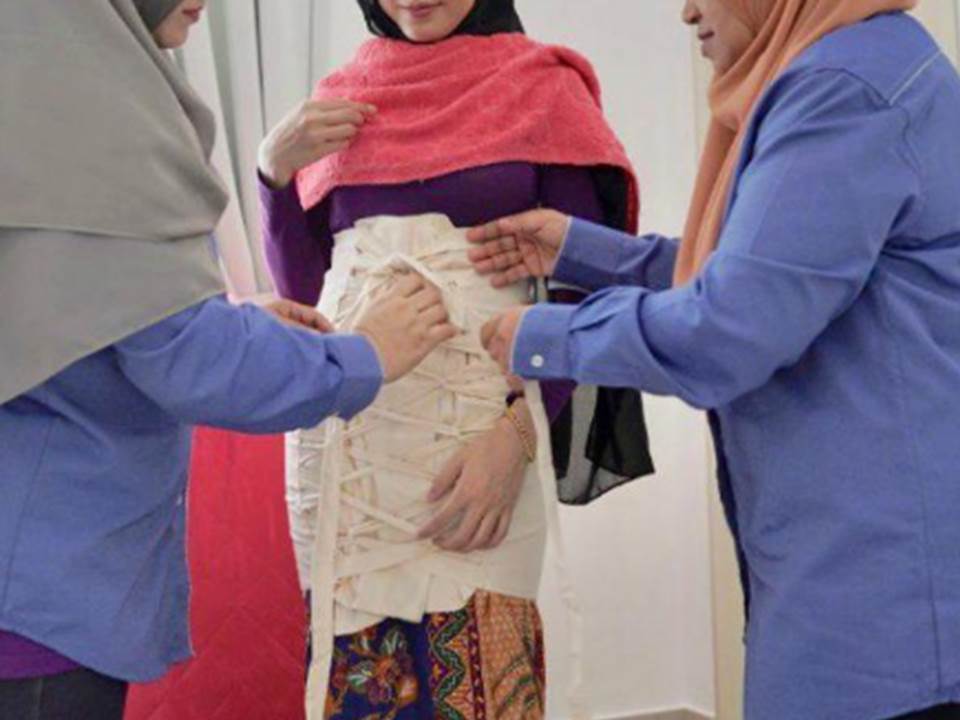
The postpartum period is a delicate phase in a woman's life, where her body undergoes significant changes and requires special care. In Malay culture, postpartum treatment holds immense significance, as it's believed to not only aid in physical recovery but also promote overall well-being.
Understanding Malay Postpartum Treatment: Malay postpartum treatment, commonly known as "pantang," encompasses a holistic approach to postnatal care. Rooted in centuries-old traditions, it combines cultural beliefs, herbal remedies, and specific dietary restrictions to support a mother's recovery after childbirth. The underlying philosophy emphasizes the importance of restoring balance and vitality to the body.
Key Practices and Rituals: One of the cornerstone practices of Malay postpartum treatment is the confinement period, typically lasting around 40 days. During this time, new mothers adhere to a set of guidelines that include dietary restrictions, herbal baths, and avoidance of strenuous activities. Central to this regimen is the consumption of "jamu," a traditional herbal concoction believed to promote healing and boost milk supply.
Another essential aspect is the use of traditional postnatal massage, known as "urut." Skilled masseuses apply gentle pressure and herbal oils to help alleviate muscle tension, improve blood circulation, and promote relaxation. This age-old practice not only aids in physical recovery but also provides emotional support to new mothers during a vulnerable period.
Addressing Common Concerns: Many women may have apprehensions about embracing Malay postpartum treatment, particularly due to misconceptions or unfamiliarity with traditional practices. However, it's essential to recognize the valuable insights and benefits it offers. For instance, herbal remedies used in pantang are often rich in nutrients and antioxidants, aiding in faster healing and strengthening the immune system.
Moreover, the emphasis on relaxation during the confinement period can significantly reduce the risk of postpartum complications and support mental well-being. By prioritizing self-care and following cultural traditions, women can navigate the postpartum journey with greater confidence and resilience.
Who Can Benefit: Malay postpartum treatment isn't limited to Malay women; its principles and practices can benefit women from diverse cultural backgrounds. Specifically, it offers a holistic approach to postnatal care, addressing both physical and emotional needs during a critical phase of motherhood. Additionally, for those seeking alternatives to mainstream medical interventions, "pantang" provides a natural and culturally rich option for postpartum recovery.
What make Malay Postpartum Treatments?
Aromatherapy: Essential oils used in aromatherapy can have calming and mood-balancing effects, which can be particularly beneficial for new mothers experiencing emotional fluctuations during the postpartum period. Aromatherapy can help promote relaxation and reduce feelings of anxiety or sadness. Commonly used oils might include lavender, chamomile, and ylang-ylang.
Herbal Body Treatments: Herbal remedies were often used in traditional Malay postpartum care for it medicinal properties. These include herbal baths, wraps, or poultices made from various medicinal plants. These treatments are believed to help cleanse the body, soothe sore muscles, and promote healing. The treatments not only aid in physical recovery but can also have soothing effects on the mind, helping to alleviate stress and promote a sense of well-being.
Massages: Postpartum massages in Malay culture are known to have multiple benefits, including promoting relaxation, improving circulation, and reducing fatigue. The physical touch involved in massages can also stimulate the release of oxytocin, the "bonding hormone," which can enhance feelings of connection and well-being for both mother and baby.
Hot Compress: Hot compresses have therapeutic effects on sore muscles and can provide comfort during the postpartum period. The warmth can help to ease tension and promote relaxation, which can be especially beneficial for new mothers who may be experiencing physical discomfort or fatigue.
Breastfeeding Support Traditional Malay postnatal massages are beneficial for breastfeeding mothers as they alleviate engorgement and clear blocked ducts. By gently massaging the breasts, these massages encourage milk flow, reduce swelling, and relieve discomfort. This support facilitates a smoother breastfeeding experience, promoting bonding between mother and baby and enhancing overall well-being during the postpartum period.
Belly Binding (Bengkung): Belly binding, known as "bengkung" in Malay, involves wrapping the abdomen with a long strip of cloth. This practice is believed to provide support to the abdominal muscles, promote healing of the uterus, and help to realign the organs back into their pre-pregnancy positions. This practice is also believed to help expel "wind" or trapped energy from the body, which can contribute to feelings of discomfort or imbalance.
In conclusion, Malay postpartum treatment offers a unique blend of tradition, wisdom, and practicality, catering to the holistic needs of new mothers. By embracing these time-tested practices, women can nurture their bodies, promote healing, and embark on their motherhood journey with vitality and strength.
